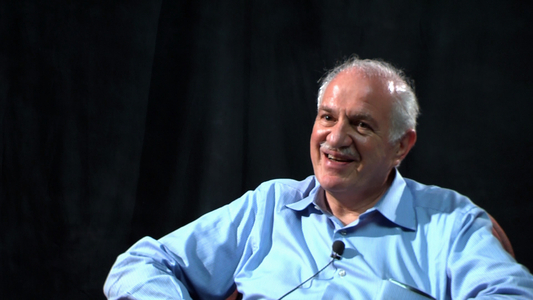Juan Prawda
Item Information
- Title:
- Juan Prawda
- Description:
-
Juan Prawda recently retired from his position with the World Bank. Born and raised in Mexico, he grew up attending secular Jewish schools from pre-school through high school. Prawda remembers his daily schedule down to the hour, from Yiddish Literature to Hebrew classes. In hindsight, Prawda laments the "phasing out" of Yiddish education in the Mexican schools, and that he never became fluent himself. Even so, he feels privileged to have had access to the work of great Yiddish writers like Asch, Aleichem and Singer. Prawda describes the Mexican Jewish community, one half from an Ashkenazi background and the other Sephardic. He estimates that during his childhood there were over five Jewish schools and perhaps around 12 today. Yiddish education and Yiddish language newspapers were phased out over the years, because of “lack of demand,” contributing to Prawda’s sadness over a changing popular Jewish identity. Once Israel became a state in 1948, Hebrew was designated as the official Jewish language, which Prawda believes was “the wrong policy decision,” leaving Yiddish and Ladino by the wayside. He explains that the result of this rejection has meant the phasing out of important cultural and educational traditions in Jewish and Ladino theatre and literature. He speaks of why he is a consistent contributor to the Yiddish Book Center, describing it as a place to "re-energize" Yiddish culture. Prawda’s parents traveled from Poland to Mexico with their own immigration stories. Prawda retells his father’s story of traveling to Mexico after World War I, with $100 in his pocket, he began to sell goods in hopes of finding a better life. Over five years later, his mother became more and more fearful of Nazi expansion and decided to leave Poland. During her journey from Warsaw to Mexico, she met what would be her future husband's family, after being assigned to the same train compartment. Once Prawda’s parents arrived in Mexico, adjusting to Mexican culture became the next struggle to overcome. He tells his father’s story of being tricked into eating a hot pepper, which he thought was a cucumber, after recently immigrating. While their parents never returned to Poland after leaving in the 1930s, Juan and his sister are looking forward to returning, with Poland citizenship in hand, to learn more about their family history. To cite this interview: Juan Prawda Oral History Interview, interviewed by Christa Whitney, Yiddish Book Center's Wexler Oral History Project, Karmazin Recording Studio, Yiddish Book Center, June 4, 2010. Video recording, http://archive.org/details/JuanPrawda4june2010YiddishBookCenter ( [date accessed] )
- Date:
-
June 4, 2010
- Format:
-
Film/Video
- Location:
- Yiddish Book Center
- Collection (local):
-
Oral Histories
- Subjects:
-
Mexico
Secular Jewish education
Yiddish education
Yiddish Book Center
Wexler Oral History Project
- Link to Item:
- https://www.yiddishbookcenter.org/collections/oral-histories/interviews/woh-fi-0000018
- Terms of Use:
-
Rights status not evaluated.
Contact host institution for more information.
- Language:
-
English




